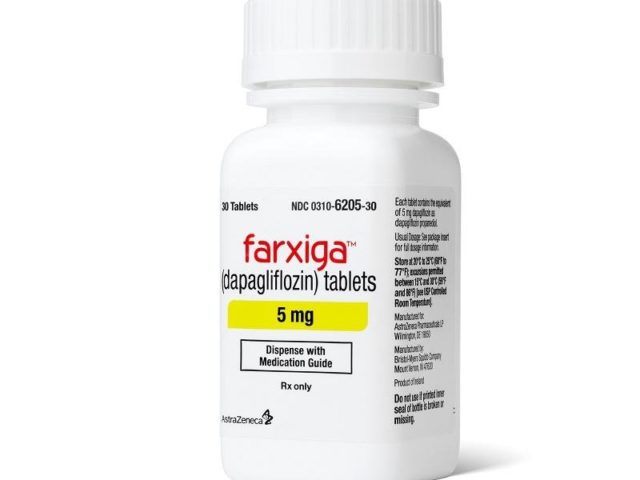
As doctors faced the novel coronavirus without an arsenal early last year, AstraZeneca wondered whether its diabetes drug Farxiga could help prevent organ failure and death among the most vulnerable COVID-19 patients. Because the oral SGLT2 inhibitor can protect organs in people with Type 2 diabetes, heart failure and chronic kidney disease, it might do the same for at-risk patients hospitalized with the virus, or so the thinking went.
A year later, however, a key phase 3 trial found the SGLT2 inhibitor fell short of that goal, and nor did it improve their recovery.
But to the trial’s lead researcher, Farxiga did perform well enough to continue studying, according to a new analysis presented Sunday during the annual scientific sessions of the American College of Cardiology.
The placebo-controlled phase 3 trial enrolled 1,250 hospitalized pandemic patients in seven countries with underlying conditions that put them at high risk, including high blood pressure, diabetes, heart failure and chronic kidney disease. For 30 days, patients were treated daily with either a placebo or dapagliflozin, and they continued that routine regardless of disease progression.
RELATED: AstraZeneca’s fast-rising diabetes med Farxiga jumps into the COVID-19 fray
Researchers found 11.2% of dapagliflozin patients died or suffered organ failure—one of the study’s primary endpoints—compared with 13.8% of placebo patients. During study follow-up, 6.6% of patients in the dapagliflozin group died versus 8.6% in the placebo group. The secondary endpoint of recovery, mostly measured as time to hospital discharge, was similar between the two groups.
While the differences were not statistically significant, it’s notable that patients in the dapagliflozin arm had numerically better outcomes in every component of organ failure from COVID-19, including respiratory, cardiac and kidney failure, as well as death from any cause, according to the ACC presentation.
Those results suggest that AZ’s SGLT2 inhibitor may provide organ protection for coronavirus patients after all, although further research is needed, said Mikhail Kosiborod, MD, a cardiologist at Saint Luke’s Mid America Heart Institute and the study’s principal investigator.
“These differences were not statistically significant, but they were very consistent and directionally favorable to dapagliflozin,” Kosiborod said in an interview with Fierce Pharma. “It raises the hypothesis that dapagliflozin may actually provide organ protection for the patient population.”
RELATED: AstraZeneca’s diabetes drug Farxiga nabs coveted kidney disease nod, way ahead of rival Jardiance
To hear Kosiborod put it, doctors were quickly able to figure out COVID-19’s tricks between the spring and fall last year, cutting back on the number of patients with organ failure or death during the trial. That made it difficult to accrue enough events to reach statistical certainty.
“You’re not dealing with a stable disease; it keeps shifting,” Kosiborod said, noting the difficulty of moving from country to country to recruit patients for the trial. “It’s like a game of whack-a-mole.”
Despite Farxiga’s uncertain effectiveness, it was well tolerated among hospitalized COVID-19 patients, indicating that SGLT2 inhibitors can still be used in those patients despite concerns of acute kidney injury and diabetic ketoacidosis. Some medical groups have recommended against using SGLT2 inhibitors in patients hospitalized with COVID-19, even in people with chronic conditions such as Type 2 diabetes and heart failure.
In the Farxiga arm, there were 21 reports of kidney injury compared with 34 in the placebo group. Meanwhile, there were two reports of ketoacidosis among the Farxiga group compared with none in the placebo arm. However, Kosiborod said both of those cases were in people with diabetes and weren’t severe.
“The bottom line is the safety looked quite good,” Kosiborod said. “I think we need to rethink these recommendations because our results do not support the discontinuation of the SGLT2 inhibitors in the setting of COVID-19 in patients who have other indications, like heart failure, diabetes or kidney disease, provided the patients are monitored.”






